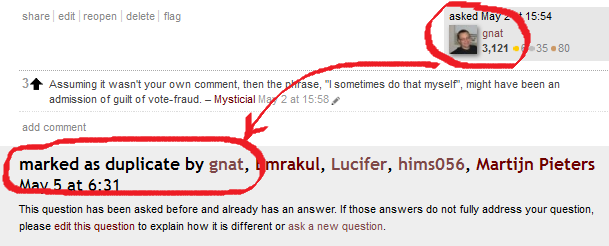what's the best way to prevent these "helpful" flaggings in the future?
Although you put this word into ironic quotes, it is helpful indeed, and instead of preventing, you better learn to use these flaggings to your advantage.
ode to dupes (from the asker's perspective:)
Just think of it: someone invested their effort, did some research and let you know that they believe your question has an answer elsewhere.
First thing to do when this happens (as you correctly did btw), is to go to the mentioned "possible duplicate" and study the answers given there.
Okay, now let's take a closer look at various possible outcomes of your study…
1. You discover that one of the answers in duplicate solves your issue
This is the best possible outcome, quite a pity it didn't happen to you this time. It occurred once or twice to me and have to admit, it felt… great. Just think of it, you get your answer, what could be better?
In cases like this I flag / or vote to close my own question myself.

The reason for "self-closure" is simple: since I found an answer, I want to save self from trouble of further "maintenance" of my question — you know, from studying and replying to possible comments, answers, from stuff like that.
Since I found an answer, I just don't need my question anymore, and the sooner I get it closed, the less I will need to worry about it in the future.
1.1. A less lucky (but still, lucky) variation of above…
…is when you find that although there is no answer to your question there (yet), the question itself is really the same as yours.
This isn't bad either, and in this case it also makes good sense to close-vote your own question — simply because this allows you to get rid of the need to maintain it. Instead, you can just follow the answers coming to the duplicate one.
2. You discover that duplicate only looks similar…
…but differs in essence from your question.
Okay, this is actually a pretty useful knowledge. Think of it, if it feels similar to you, then it might feel similar to other readers of your question who could in turn begin giving you useless answers addressing that similar question instead of yours. Now this is something worth preventing, isn't it?
You don't need answers telling you "do X" when you already know this won't help you, you need a way to "repel" these before they get in and begin wasting your efforts in cumbersome explanations that this is not what you need. Good news is, that "possible duplicate notification" gives you the means to prevent this.
- Think of it, before the mentioned notification you didn't even know that your question may be misread that way, that it can get useless answers because of this mis-interpretation. But, now you know, and you can use this knowledge to your advantage!
All you do is just edit your question and add something like:
There is another question that reads similar, but it is actually different, because of <explain what are the differences between what you need and what is needed in that other question>.
That's it! Any reader now clearly understands what kind answers aren't of interest for you, this saves you from being pestered by irrelevant stuff like that anymore.
3. You discover that "duplicate" is totally different, obviously irrelevant.
That's the least useful outcome, but still…
If you think of it, "possible duplicate notification" warns you that someone dumb enough may misread your question in a really weird way (and, well, bother you by posting respectively weird answers and comments).
This risk is rather minor compared to previous case (similar-but-different) but thing is, preventing it is much easier, too. Since you already invested (wasted) some effort on studying that useless not-a-dupe-at-all, just put a little extra effort into "converting" it into something at least marginally useful to you.
For that, you just edit your question and add at its bottom something like,
Side note I also studied another question to find out maybe there's something useful to me there, but it turned out totally irrelevant because of <put an obvious, easy to understand, explanation "for dummies" here>.

